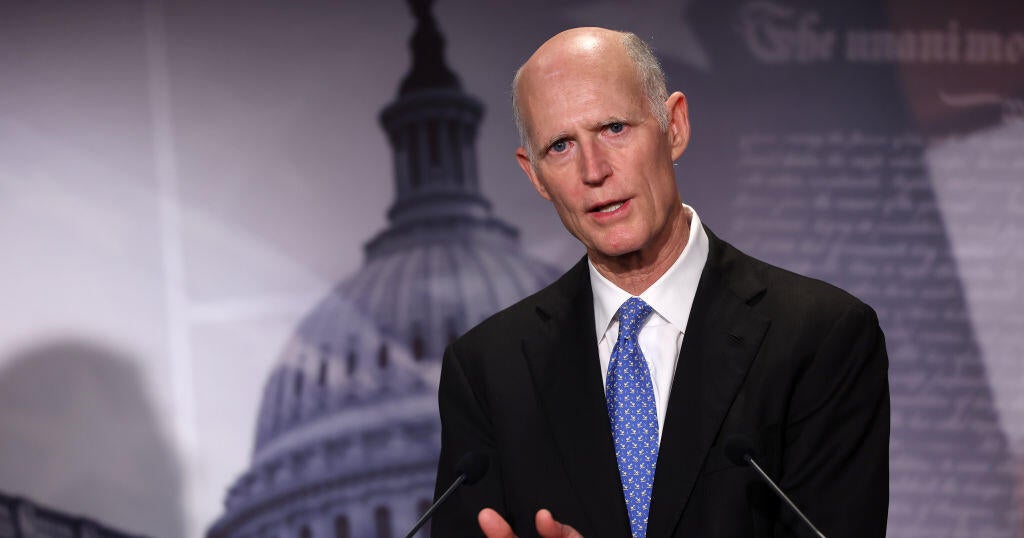Who would gain with the Senate tax bill?
With House Republicans on Thursday approving a package of corporate and individual tax cuts, eyes are now shifting to the Senate and its tax reform plan.
How would Americans fare under the Senate's plan? For the 572,000 or so taxpayers who earn more than $1 million per year, it would provide billions in lower payments to Uncle Sam over the next decade, according to a new report from the Joint Committee on Taxation (JCT), the official nonpartisan committee that analyzes tax-related issues.
The picture isn't as rosy for taxpayers who earn less than $75,000 per year, however. While the group would benefit from an initial tax cut in 2019, that would reverse over the next decade. By 2027, all households earning between $50,000 and $75,000 would contribute almost $4 billion more per year in taxes, the study found.
Millionaires in 2027 would contribute $5.6 billion less than under current law.
That represents a starkly different picture than that painted by President Donald Trump and Republican leaders, who have praised efforts to reform the tax code as a win for middle-class Americans. Senate Finance Committee Chairman Orrin Hatch, R-Utah, predicted the Senate's version "will lift hardworking, middle-class families."
But critics say the Senate plan would leave poor and middle-class families worse off.
"It proposes a permanent change in the tax code that would raise taxes on many low- and middle-income individuals who would get little or nothing from the permanent corporate rate cuts," the left-leaning Center on Budget and Policy Priorities said in a Thursday report.
Issues that raise red flags include the Senate's proposal to end middle-class benefits such as the standard deduction and the Child Tax Credit after eight years, the CBPP said. It also criticized the Senate's plan to repeal the Affordable Care Act's individual mandate, which requires Americans to have health insurance coverage or else pay a tax penalty.
Eliminating the individual mandate would likely increase the number of uninsured Americans by 13 million in 2027, the Congressional Budget Office estimated. Premiums would rise about 10 percent because fewer people would be contributing to the insurance pool.
The JCT estimates lower-income workers are likely to face a tax increase because of the elimination of the individual mandate, according to The Washington Post. Thomas Barthold, the head of the committee, told the publication its estimates are based on tax breaks for Obamacare plans disappearing as some consumers decide against buying insurance.
Some took issue with that analysis, as Tax Policy Center co-founder Len Burman tweeted, "This is not a burden increase."
"People who qualify for premium tax credits and drop insurance are better off doing it (their cost of insurance doesn't change)," he wrote.
Nevertheless, tax experts found plenty to be concerned about with the Senate proposal, including the disappearance of individual income tax changes after eight years.
Sen. Hatch is betting "first, voters will be so enthralled by their initial tax cuts that they'll ignore the bill's future tax increases," wrote the Tax Policy Center's Howard Gleckman in a blog post on Wednesday. "Second, nobody -- not even Democrats -- would be willing to allow the bill's tax cuts to expire. Democrats, of course, believed no one would kill the Affordable Care Act."
In the JCT's analysis, households earning between $50,000 to $75,000 -- the income range of the typical American -- would see their tax rate decline to 13.5 percent in 2019 under the Senate plan, compared with 14.8 percent under current tax law. But by 2027, the same family would pay a tax rate of 14.6 percent -- higher than the 14.5 percent predicted under current tax law, the JCT said.
Households earning $1 million per year would see their average tax rate decline to 30.4 percent in 2019, shaved from 32.5 percent under current law. By 2027, they would still be better off, paying an average rate of 31.7 percent, lower than the 32.1 percent under current law.





